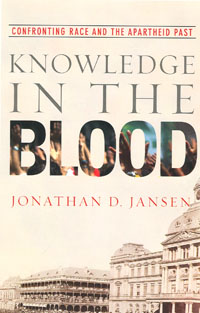Latest News Archive
Please select Category, Year, and then Month to display items
27 October 2025
|
Story Sefako Mokhosoa
|
Photo Supplied
 Ten Grade 12 learners from Mampoi Secondary School in Phuthaditjhaba.
Ten Grade 12 learners from Mampoi Secondary School in Phuthaditjhaba.
On 1 October 2025, the Projects and Innovation Directorate in the Faculty of Education at the University of the Free State (UFS) proudly hosted a certificate ceremony to honour ten Grade 12 learners from Mampoi Secondary School in Phuthaditjhaba on the Qwaqwa Campus. These learners completed a Skills Development Initiative and Workshop Series focused on digital literacy and ICT skills – a programme designed to equip rural youth with the tools they need to thrive in a digital world.
The initiative, which ran from May to August 2025, was made possible through a strategic partnership with BANKSETA to bridge the digital divide in rural communities. The learners received hands-on training in essential digital tools. Each learner also received a tablet to support continued learning and personal growth beyond the classroom.
The Director of the office in the Faculty of Education, Dr Kwazi Magwenzi, stressed that digital skills promote independence and self-directed learning. “Grade 12 is a time when learners should manage their studies, meet deadlines, and explore their options,” she said. “Digital fluency supports that autonomy. It enables learners to use online research, interactive tools, e-learning, and collaboration platforms to make learning more effective, flexible, and aligned with their pace and style. In Grade 12, where the stakes are high – with exams, tertiary entrance, and career choices – this ability helps learners become more self-directed, confident, and equipped.”
The programme not only built learners’ confidence in using ICT tools for learning and communication but also prepared them for the technologically driven environments they will encounter in institutions of higher learning.
Beyond developing digital skills, the project offered learners valuable exposure to the university environment, as their training took place on campus. Inspired by the success of this pilot, the Faculty of Education now aims to expand the initiative to reach more schools and learners across the region. The vision is to scale up access to digital education and empower more young people in rural areas with the skills necessary for academic and professional success.
This ceremony marked the conclusion of a successful training programme and the beginning of a long-term commitment to digital empowerment and lifelong learning in rural communities.
Knowledge in the blood
2009-08-05
| Knowledge in the blood |
|
 The book Knowledge in the blood, by Prof. Jonathan Jansen, Rector and Vice Chancellor, is available at a bookstore on the Thakaneng Bridge. The book Knowledge in the blood, by Prof. Jonathan Jansen, Rector and Vice Chancellor, is available at a bookstore on the Thakaneng Bridge.
Knowledge in the blood
Confronting race and the apartheid past
Professor Jonathan D. Jansen
978 1 91989 520 8
225 x 152mm
336 pages
Soft cover
May 2009
R250.00 (incl. VAT)
UCT Press
Southern African rights
This book tells the story of white South African students—how they remember and enact an Apartheid past. How is it that young Afrikaners, born at the time of Mandela’s release from prison, hold firm views about a past they never lived, rigid ideas about black people, and fatalistic thoughts about the future? Jonathan Jansen, the first black dean of education at the historically white University of Pretoria, was dogged by this question during his tenure, and Knowledge in the Blood seeks to answer it.
While Jansen originally set out simply to convey a story of how white students change under the leadership of a diverse group of senior academics, Knowledge in the Blood ultimately became an unexpected account of how these students in turn changed him.
“Brave, discerning, and deeply affecting. Bringing realism and rare moral generosity to the most difficult of conflicts, Jonathan Jansen illuminates the struggles faced by the inheritors of violence, as they move from pride and prejudice to a new and larger knowledge. An act of empathy as well as penetrating analysis, Knowledge in the Blood is an inspiring blueprint for thinking about social and personal transformation.”
—Eva Hoffman, author of After Such Knowledge
|
|
|